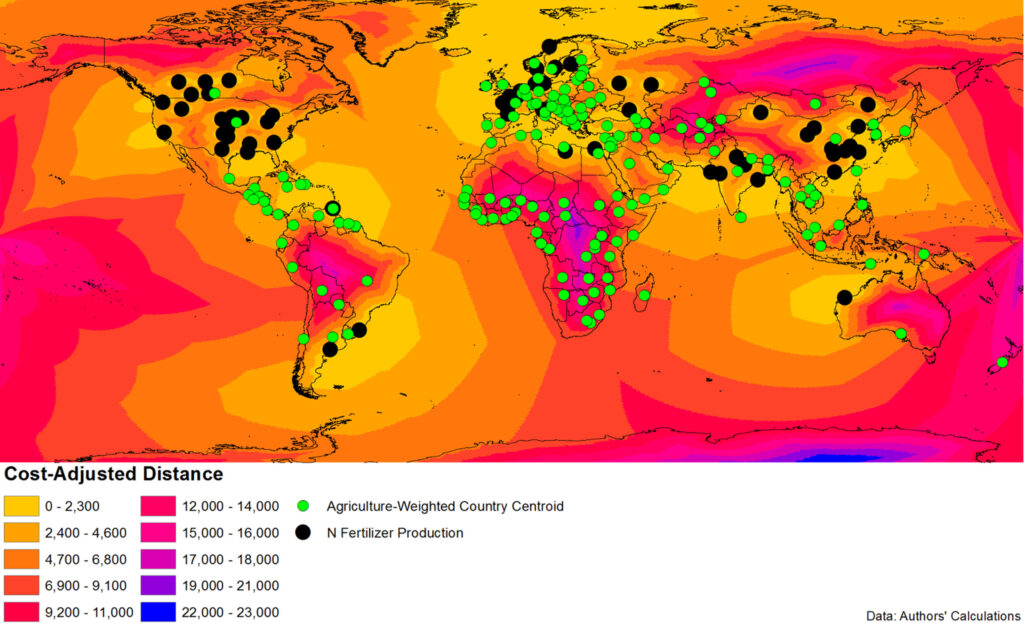Technological transformations open new opportunities and disrupt old patterns. Founded in 2006, Center on Global Transformation (CGT) provides a new framework for vanguard exploration of topics critical to analyzing and shaping the forces of economic change in a deeply interconnected, thoroughly dynamic world. CGT and its Pacific Leadership Fellows program focus on academic inquiry and policy analysis of international issues. CGT’s core mission is to: Foster and disseminate research that addresses global economic and technology transformation Develop and maintain a network…
SDG 8
Inclusive and sustainable economic growth can drive progress and generate the means to implement the Sustainable Development Goals. Globally, labour productivity has increased and unemployment is back to pre-financial crisis levels. However, the global economy is growing at a slower rate. More progress is needed to increase employment opportunities, particularly for young people, reduce informal employment and the gender pay gap and promote safe and secure working environments to create decent work for all.
Recent research at the School of Global Policy and Strategy
The Japan Forum for Innovation and Technology (JFIT) bridges Japan and San Diego by offering information and introductions to businesses and policymakers across the Pacific. As part of San Diego’s larger push to build stronger connections with Japan, UC San Diego’s School of Global Policy and Strategy has established JFIT as a hub for interaction, exchange and collaboration, through research projects, conferences, networking events and global education programs. JFIT also provides regular information and discussion groups on the UC…
The Policy Design and Evaluation Lab (PDEL) is an international focal point for rigorous empirical research on the interplay of public policy, technology, and economic development. PDEL combines advanced social science methodology with the power of information technology to design policies and programs that alleviate poverty; promote health, welfare, and security; and enhance accountability. Why PDEL? UC San Diego and its scholars are at the leading edge of a movement to develop a new class of solutions to some of…
Achyuta Adhvaryu
This study examines the impact of workplace-based soft skills training on the productivity of Indian garment workers. The study finds that such training leads to significant productivity gains, with treated workers becoming 13.5% more productive than their untreated counterparts. These gains are particularly pronounced when trainees work in teams alongside their coworkers, emphasizing the importance of teamwork and collaboration skills. Interestingly, even untreated coworkers on the same production lines as the trained workers show increased productivity, suggesting positive spillover effects. However, despite the productivity improvements and higher promotion probabilities among trained workers, the study finds no effects on wages or worker retention, indicating labor market frictions. Nevertheless, the firm experiences substantial net returns, with a 256% return on investment
Teevrat Garg
The paper explores the unexpected consequences of road construction projects in rural India. While constructing roads to connect labor markets in remote areas is often seen as a positive development, this study reveals a significant drawback. The research finds that such road projects inadvertently lead to an increase in harmful crop fires, which have detrimental effects on both air quality and human health. The paper draws attention to the need for a more comprehensive understanding of the multifaceted impacts of rural infrastructure development, highlighting the importance of considering environmental consequences alongside economic benefits when planning such initiatives in developing regions.
2023
Gordon McCord
Nighttime lights are routinely used as a proxy for economic activity when official statistics are unavailable and are increasingly applied to study the effects of shocks or policy interventions at small geographic scales. The implicit assumption is that the ability of nighttime lights to pick up changes in GDP does not depend on local characteristics of the region under investigation or the scale of aggregation. This study uses panel data on regional GDP growth from six countries, and nighttime lights from the Defense Meteorological Satellite Program (DMSP) to investigate potential nonlinearities and measurement errors in the light production function. Our results for high statistical capacity countries (the United States and Germany) show that nightlights are significantly less responsive to
2022
Gordon McCord
Subnational measures of economic activity are crucial for analyzing inequalities that persist across subnational regions and for tracking progress towards sustainable development within a country. Eighteen of the Sustainable Development Goals (SDG) indicators require having estimates of Gross Domestic Product (GDP), making subnational GDP estimates crucial for local SDG monitoring. However, many countries do not produce official subnational GDP estimates. Using Paraguay as an example, we show how nightlights imagery from the Visible Infrared Imaging Radiometer Suite’s Day-Night Band (VIIRS-DNB) and data from neighboring countries can be used to produce subnational GDP estimates. We first estimate the relationship between VIIRS and economic activity in South American countries at the first subnational administrative level, employing various econometric models. Results suggest
2022
Kyle Handley
Trade policy uncertainty (TPU) has become an important source of economic uncertainty and research. We review the main sources and measures of TPU. We then provide a conceptual framework for modeling TPU and methods of estimating and quantifying its effects. We analyze its role in trade agreements and discuss open questions for future research.
Achyuta Adhvaryu and Gaurav Khanna
Evidence suggests that natural resources have driven conflict and underdevelopment in modern Africa. We show that this relationship exists primarily when neighboring regions are resource-rich. When neighbors are resource-poor, own resources instead drive economic growth. To motivate the empirical study of this set of facts, we present a simple model of parties engaged in potential conflict over resources, revealing that economic prosperity is a function of equilibrium conflict prevalence, determined not just by a region’s own resources but also by the resources of its neighbors. Structural estimates confirm the model’s predictions, and reveal that conflict equilibria are more prevalent where institutional quality is worse.
Teevrat Garg
Through a field experiment in Indonesia, we show that worker productivity was 8.22% lower in deforested relative to forested settings, where wet bulb globe temperatures were, on average, 2.84 °C higher in deforested settings. We demonstrate that productivity losses are driven by behavioral adaptations in the form of increased number of work breaks, and provide evidence that suggests breaks are in part driven by awareness of heat effects on work. Our results indicate that the cooling services from forests have the potential for increasing resilience and adaptive capacity to local warming.
David Victor and Gordon McCord
The Zero Carbon Action Plan (ZCAP) will serve as a roadmap for the U.S. based on the latest modeling, research and understanding of decarbonizing six key sectors (power, transport, industry, buildings, food and land use, and materials) supported by technical pathways to zero carbon by 2050, as well as supporting policy recommendations. The ZCAP was designed by a cohort of nearly 100 researchers and 19 Chairs who make up the Zero Carbon Consortium, who are experts in their fields of climate change policy; clean energy pathways modeling; industrial policy high-employment green economies; legislative and regulatory policy; electricity (power) generation; transportation; industry; buildings; sustainable land-use; and sustainable materials management.
Jesse Driscoll
Shelter-in-place ordinances were the first wide-spread policy measures aimed to mitigate the spread of COVID-19. Compliance with shelter-in-place directives is individually costly and requires behavioral changes across diverse sub-populations. Leveraging county-day measures on population movement derived from cellphone location data and the staggered introduction of local mandates, we find that economic factors have played an important role in determining the level of compliance with local shelter-in-place ordinances in the US. Specifically, residents of low income areas complied with shelter-in-place ordinances less than their counterparts in areas with stronger economic endowments, even after accounting for potential confounding factors including partisanship, population density, exposure to recent trade disputes, unemployment, and other factors. Novel results on the local impact of the 2020
Caroline Freund
Export superstars are important for export growth and diversification and are typically born large. Firm-level data on manufacturing trade from 32 developing countries show that the top five exporters account for on average nearly one-third of exports, 47 percent of export growth, and a third of the growth due to export diversification over a five-year period. Within countries and industries, export growth is positively correlated with the share of exports in the top five firms. Most of the top five exporters were already large five (or eight) years ago or are new firms; it is rare for these export superstars to emerge from the bottom half of the distribution of firm sizes. For countries where detailed data exist, superstars
David Victor
The most precipitous contraction of the global economy in a century has seen carbon emissions plummet. By the end of this year, emissions are likely to be 8% less than in 2019 — the largest annual percentage drop since the Second World War. To avert a global recession, governments are injecting trillions of dollars into stimulating their economies. The International Monetary Fund anticipates economic recovery by the end of this year, provided there are no further large outbreaks of disease. If nothing else changes, then emissions will tick upwards once more, as they have after each recession since the first oil shock of the early 1970s. The analysis we present here examines past recoveries to find lessons that help
2020
Alexander Gelber
We introduce a method for estimating the cost of adjusting earnings, as well as the earnings elasticity. In the context of the Social Security Earnings Test, our results demonstrate that the short-run impact of changes in the effective marginal tax rate can be substantially attenuated.
John Ahlquist
This paper provides evidence that firms in Right-to-Work states tend to specialize in lower-quality products, making them more susceptible to competition with Chinese goods. However, while reducing unionization within manufacturing, import competition causes a robust increase in unionization outside of manufacturing, more than offsetting within-manufacturing declines.
2020
John Ahlquist
How do external economic shocks influence domestic politics? We argue that those materially exposed to the shock will display systematic differences in policy preferences and voting behavior compared to the unexposed, and political parties can exploit these circumstances. Empirically, we take advantage of the 2015 surprise revaluation of the Swiss franc to identify the Polish citizens with direct economic exposure to this exogenous event. Using an original survey fielded prior to the 2015 elections and an embedded survey experiment, we show that exposed individuals were more likely to demand government support and more likely to desert the government and vote for the largest opposition party, which was able to use the shock to expand its electoral coalition without alienating
John Ahlquist
Most research on private governance examines the design and negotiation of particular initiatives or their operation and effectiveness once established, with relatively little work on why firms join in the first place. We contribute to this literature by exploring firms’ willingness to participate in two recent, high-profile private initiatives established in the aftermath of the Rana Plaza disaster in the Bangladesh ready-made garment (RMG) sector: the Accord on Building and Fire Safety and the Alliance for Worker Safety in Bangladesh. We are able to positively attribute only a minority of US RMG imports from Bangladesh to Accord and Alliance signatories. Firms headquartered in the USA were much less likely to sign onto remediation plans, especially the Accord.
Ulrike Schaede
San Diego’s innovation ecosystem offers new business opportunities for Japanese companies due to its close match to Japanese core industrial strengths, such as engineering, production technologies and infrastructure solutions. To be successful in San Diego, as compared to Silicon Valley, companies are advised to adopt a longer term investment horizon, an interest in future technologies that straddle existing industry borders, and the willingness to become an integral player in San Diego’s investment and startup community through immersion and inclusion.
2020
Craig McIntosh
We play a series of incentivised laboratory games with risk-exposed co-operativised Guatemalan coffee farmers to understand the demand for index-based rainfall insurance. We estimate an explicit utility curve for every player and hence predict expected utility demand under counterfactual scenarios. Using these estimates, we provide a precise money-metric decomposition of the extent to which the low observed demand for index insurance is driven by expected utility theory, or by behavioural issues arising from a prospect-style utility structure. Our results suggest that consumers value probabilistic insurance using a prospect-style utility function that is concave both in probabilities and in income.
2019
Krislert Samphantharak
This paper examines the extent to which a fiscal stimulus through car loans induces financial distress. Using data to study the impact of Thailand’s first-car-buyer tax rebate scheme at both individual and postcode levels, this paper finds that the program led to higher loan delinquency and crowded out other loan originations, which are symptoms implied by excessive debt burden..
Ruixue Jia
China is the world’s largest user of industrial robots. In 2016, sales of industrial robots in China reached 87,000 units, accounting for around 30 percent of the global market. To put this number in perspective, robot sales in all of Europe and the Americas in 2016 reached 97,300 units. Between 2005 and 2016, the operational stock of industrial robots in China increased at an annual average rate of 38 percent. In this paper, we describe the adoption of robots by China’s manufacturers using both aggregate industry-level and firm-level data, and we provide possible explanations from both the supply and demand sides for why robot use has risen so quickly in China.
Peter Cowhey
Everyone in Washington agrees on the need to promote “innovation” to ensure economic prosperity. However, high levels of unemployment have eroded confidence in the ability of our innovation system to create and maintain middle-class jobs for Americans. In our view, “innovation” can sustain employment and competitiveness, but only if we redefine our understanding of innovation and the policies supporting innovation.
Joshua Graff Zivin
We investigate the effect of pollution on worker productivity in the service sector by focusing on two call centers in China. Using precise measures of each worker’s daily output linked to daily measures of pollution and meteorology, we find that higher levels of air pollution decrease worker productivity. These results manifest themselves at levels of pollution commonly found in large cities throughout the developing and developed world.
Weiyi Shi
This paper argues that the strategies firms employ to cope with political risks in authoritarian countries are often, due to a lack of institutionalized political access and credible commitments in those countries, extra-institutional; they require the accumulation of country-specific knowledge and political capital, and thus, are not easily transferable. Therefore, we expect that emerging-market multinational corporations from authoritarian countries do not favor other autocracies and are sensitive to political risks in host countries.
2018
Munseob Lee
We use detailed product- and firm-level data to study the sources of innovation and the patterns of productivity growth over the period from 2007 to 2013. We document several new facts on product reallocation. First, every quarter around 8 percent of products are reallocated in the economy, and the entry and exit of products are prevalent among different types of firms. Second, most reallocation of products occurs within the boundaries of the firm. The entries and exits of firms only make a small contribution in the overall creation and destruction of products. Third, product reallocation is strongly pro-cyclical and declined by more than 25 percent during the Great Recession.
Emilie Hafner-Burton
A growing number of developed country governments link good governance, including human rights, to developing countries’ access to aid, trade, and investment. We consider whether governments enforce these conditions sincerely, in response to rights violations, or whether such conditions might instead be used as a veil for protectionist policies, motivated by domestic concerns about import competition. We argue that the two-tiered structure of the GSP privileges some domestic interests at one level, while disadvantaging them at the other.
Agustina Paglayan
Public‐sector unions are generally thought to increase the size of government through collective bargaining. This article challenges this idea for the case of teacher unions in the United States and argues that while collective bargaining institutions sometimes lead to increased education spending, this is not the norm.
Richard Feinberg
This book examines the Cuban economy as it makes its early steps into developing a more dynamic market economy.
Barry Naughton
State enterprise reforms are underway in China, and include some positive and overdue corporate governance reform. However, the potential effectiveness of the reforms is compromised by the attempt of policy-makers to achieve three goals which form an “impossible trinity”: increase firm autonomy; improve oversight; and assign new developmental missions to state firms.
Elizabeth Lyons
Coworkers are increasingly diverse in their nationality and skill sets. This paper studies the effect of diversity on how workers are organized using data from a field experiment conducted in an environment where diversity is pervasive. Findings show that team organization improves outcomes when workers are from the same country. The opposite is true when workers are nationally diverse. These results are more pronounced for teams of workers with specialized skills. Further investigation of the data suggests that nationally diverse teams have difficulty communicating.
Gaurav Khanna
There is growing awareness that development-oriented government policies may be an important counterinsurgency strategy, but existing papers are usually unable to disentangle various mechanisms. Using a regression-discontinuity design, we analyze the impact of one of the world’s largest anti-poverty programs, India’s NREGS, on the intensity of Maoist conflict. We find short-run increases of insurgency-related violence, police-initiated attacks, and insurgent attacks on civilians. We discuss how these results relate to established theories in the literature. One mechanism consistent with the empirical patterns is that NREGS induces civilians to share more information with the state, improving police effectiveness.
Gordon McCord
This paper estimates the role of agronomic inputs in cereal yield improvements and the consequences for countries’ processes of structural change. It is estimated that a half-ton increase in staple yields generates a 14 to 19 percent higher GDP per capita. Five years after the increase in staple yields, there is an estimated 4.6 to 5.6 percentage point lower labor share in agriculture.
John Ahlquist
Decades of research across several disciplines have produced substantial evidence that labor unions, on balance, reduce economic disparities. But unions are complicated, multifaceted organizations straddling markets and politics. Much of their equality-promoting influence occurs through their ability to reduce class-based inequity in politics and public policy. Declining unionization across much of the developed world is eroding workers’ bargaining power. Reduced economic leverage puts pressure on union solidarity and weakens labor-based political movements. Important research design problems and significant heterogeneity across unions, regions, countries, and time imply a continued need for more work.



































